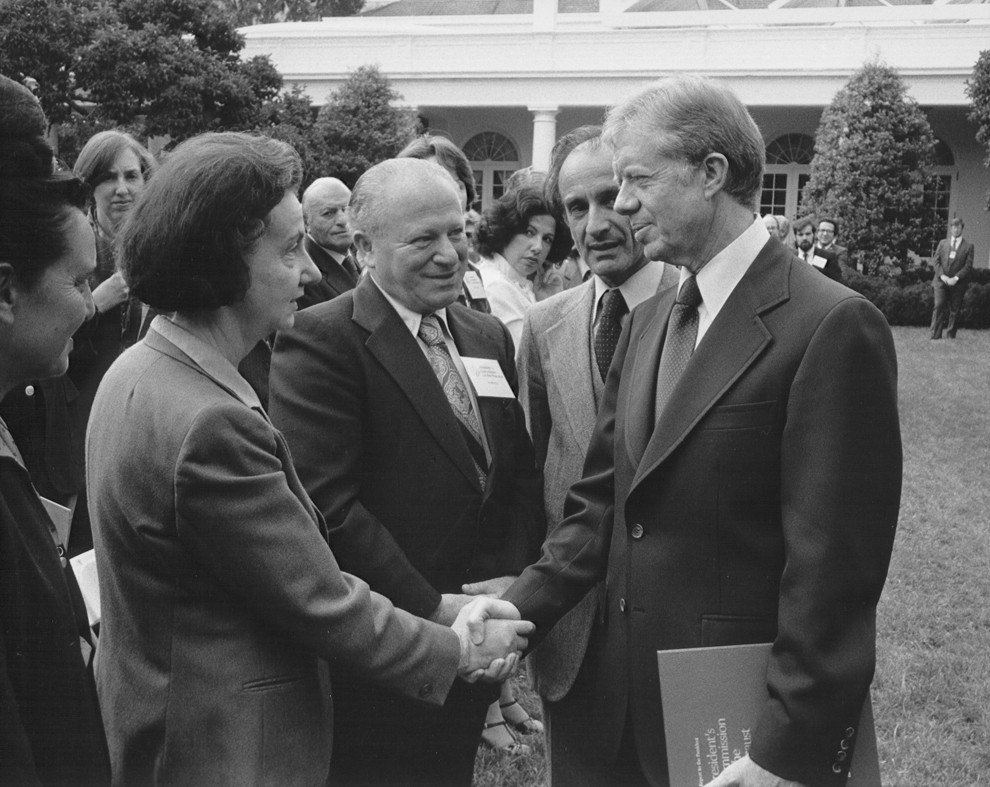
Excerpts from the President's Commission Report
On November 1, 1978, President Jimmy Carter established the President's Commission on the Holocaust and charged it with the responsibility to submit a report "with respect to the establishment and maintenance of an appropriate memorial to those who perished in the Holocaust."
Background
The Commission, chaired by Elie Wiesel, consisted of 34 members and included Holocaust survivors, lay and religious leaders of all faiths, historians and scholars, and members of Congress. The Commission solicited suggestions from American citizens and traveled to Holocaust-era sites and memorials in Europe.
Excerpts
We wish, through the work of this Commission, to reach and transform as many human beings as possible. We hope to share our conviction that when war and genocide unleash hatred against any one people or peoples, all are ultimately engulfed in the fire.
The question of how to remember makes up the bulk of the Commission's report. Memorial, museum, education, research, commemoration, action to prevent a recurrence: these are our areas of concern.
Of all the issues addressed by the Commission, none was as perplexing or as urgent as the need to insure that such a totally inhuman assault as the Holocaust—or any partial version thereof—never recurs. The Commission was burdened by the knowledge that 35 years of post-Holocaust history testify to how little has been learned. Only a conscious, concerted attempt to learn from past errors can prevent recurrence to any racial, religious, ethnic, or national group. A memorial unresponsive to the future would also violate the memory of the past.
Critical Thinking Questions
- Why is commemorating the Holocaust important?
- What role do museums, education, and research play in the commemoration of the Holocaust?
- How can we use history to inform our understanding of current events today?

